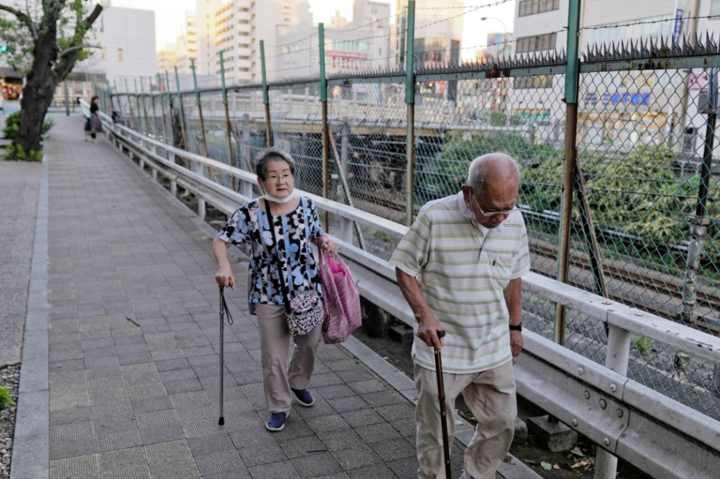Many Japanese People Do Not Want to Live to a Hundred Years Old
According to a study on aging in six countries, most Japanese people do not aspire to live to a ripe old age, in stark contrast to the attitudes of people in other countries regarding longevity.
The survey results showed that the majority of Japanese “perceive negative aspects of being a centenarian,” with only slightly over 20% feeling that they would be happy to live that long. Takashi Tanaka, the study’s author, concluded in his report that “Japan is the only country that does not see the positive aspects of old age.”

According to the report, the negative aspects that concern Japanese people primarily include not wanting to burden their families as they age and anticipating physical and mental difficulties at the age of 100. Participants from the United States, China, South Korea, Germany, and Finland also shared these concerns.
“However, people in other countries focus more on the positive aspects,” said Tanaka.
Only 27.4% of Japanese respondents expressed a desire to live to 100, compared to 52.8% in Germany, 53.1% in South Korea, 58.4% in Finland, 65.6% in China, and 66.7% in the United States.
The research was conducted by the Centenarian Research Institute to commemorate the International Day of Happiness, as designated by the United Nations on March 20. The study surveyed 2,800 Japanese individuals aged 20 to 79 about their thoughts on old age, along with a similar group of participants from other countries.
Kanako Hosomura, a 41-year-old housewife from Yokohama, Japan, shared, “I would be very happy if I could live to 100, but only if I have the physical and mental capabilities to take care of myself.”
She added, “I don’t want to rely on others for even simple tasks, as I would become a burden to them. But if I can still move around and have a clear mind, why not live to 100?”
Hosomura also expressed concerns about becoming more pessimistic about the future as she grows older, but having a family and close friends would provide a positive outlook.
Makoto Suzuki, a 90-year-old cardiologist, revealed that the people of Okinawa have a different perspective on longevity compared to the rest of Japan.
“There are many reasons why people here live longer, but the fundamental reason is ‘ikigai’,” he said, referring to the traditional concept of purpose, reason for being, and passion in life. For Suzuki, his “ikigai” is his work in the city of Naha and being the founder of the Okinawa Longevity Science Center.
Suzuki further explained that, in addition to the reasons for survival, many Okinawan residents maintain a healthy diet rich in vegetables, fruits, and seafood, as well as a strong sense of community.
“Of course, I want to live to 100,” Suzuki said. “I can’t be certain that it will happen, but I will try to maintain my health.”
Tomoko Owan, a 64-year-old associate professor at the Faculty of Medicine at Ryukyu University, agreed that a positive outlook on life is crucial. She even continues to teach karate at a university in Okinawa.
“I believe the key is to be comfortable and have a positive attitude. A balanced and healthy diet is also very helpful,” Owan said, emphasizing the importance of daily physical, mental, and spiritual training.
“I am in very good health. I would love to live to 120 if I can maintain my health,” she added.
The report also revealed that Japanese people are less satisfied with their lives compared to others, with an average happiness score of 5.9 out of 10 among surveyed individuals in the country. This is the lowest score among the six countries, with China ranking as the happiest country with a score of 7.4 out of 10, followed by Finland with 6.8 and Germany with 6.6.
Japanese people also have similar pessimistic views about the country’s future, ranking the lowest when asked about “a bright future” for Japan, the potential for increased happiness, and economic growth.
“Looking at the survey results, to increase happiness, it is important to perceive the happiness of those around you and focus on positive aspects in one’s own life,” Tanaka concluded.
